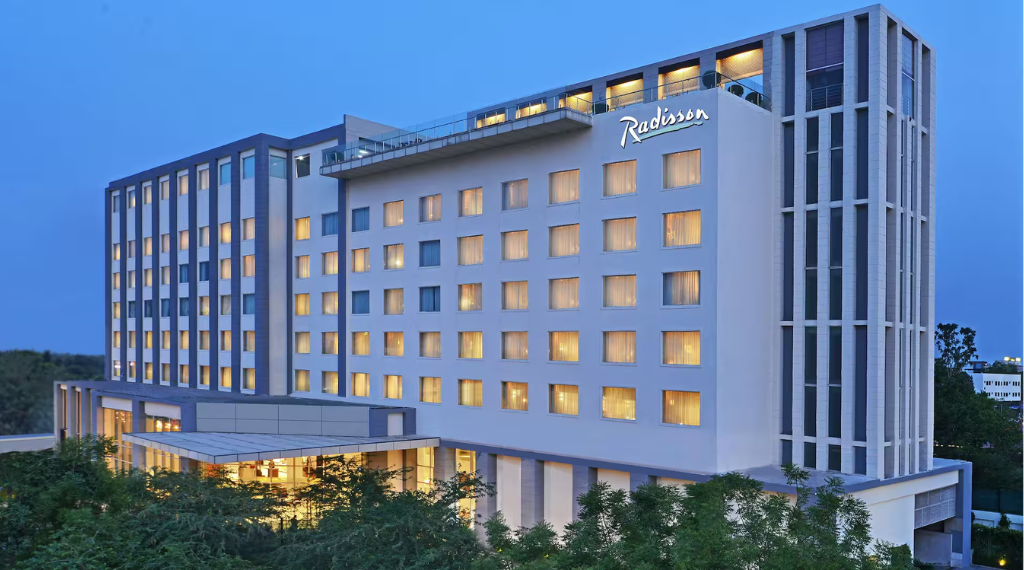The Belgium-headquartered hotel group is set to nearly triple its workforce as it positions India as a pivotal growth market in its global expansion strategy
Radisson Hotel Group has unveiled ambitious plans to expand its Indian portfolio to 500 hotels by 2030, creating employment opportunities for 50,000 people across the country. The announcement marks one of the most significant workforce expansion commitments in the Indian hospitality sector.
The global hotel brand currently operates over 200 properties in India, with 130 operational and 70 under development. The expansion will see the group more than double its presence, targeting 250–260 hotels by 2026 before reaching the 500-hotel milestone by the end of the decade.
Elie Younes, Executive Vice President and Global Chief Development Officer at Radisson Hotel Group, confirmed the workforce will grow from 17,000 employees currently to 50,000 by 2030. The scale of hiring reflects the group’s confidence in India’s economic trajectory and the rising demand for hospitality services across multiple segments.
Strategic focus on emerging markets
Radisson’s growth strategy places particular emphasis on tier-two and tier-three cities, where over half of its current Indian portfolio is already located. This distribution pattern is expected to continue as the group capitalises on infrastructure development and increasing demand for quality accommodation outside major metropolitan areas.
The expansion includes luxury, upscale, midscale and lifestyle brands such as Radisson Blu, Radisson Collection, Radisson RED and Park Inn by Radisson. Recent additions to the portfolio include the Radisson Collection Resort and Spa in Jaipur, highlighting the group’s focus on diversifying its offerings.
In the past 18 months alone, Radisson has signed 59 new projects across 47 cities, demonstrating accelerated growth momentum. According to hospitality consultancy Hotelivate, the group now ranks second among international hotel operators in India by city presence, with operations across 81 cities.
Building workforce capability
The employment growth comes alongside significant investment in talent development. Radisson has partnered with the Tourism and Hospitality Skill Council and The Job Plus to train over 300 individuals in hospitality skills across India. The group also supports the Youth Employment Programme of the Sustainable Hospitality Alliance, which provides practical training for underprivileged youth across hotel departments.
Around 70% of Radisson’s general manager roles are filled internally, supported by Radisson Academy Online and the Typsy platform. The company reports delivering over 92,000 training hours and issuing 111,000 certificates through these programmes.
Karl Wood, founder of WINC HR Strategy and Solutions and Editor-in-Chief of WINC Wire, observes that workforce planning at this scale requires more than recruitment. “High-performing cultures are not built through slogans or one-off initiatives. They grow through clarity, consistency and leadership that stays close to people,” Wood explains. “When organisations scale rapidly, the challenge isn’t just filling positions – it’s building systems that allow people and performance to thrive together.”
India’s position in global expansion
With this expansion, India will become Radisson’s second-largest market globally after China, which added 130 hotels in 2025 alone. The group’s Asia Pacific region now has close to 300 hotels in its pipeline, underscoring the strategic importance of the region.
Younes identified infrastructure improvements, tourism development and the dynamism of India’s workforce as key drivers for expansion. The executive also suggested that easier visa regulations and improved airline infrastructure would further support growth in foreign tourist arrivals.
The branded residences segment will remain an alternative model for Radisson over the next five years rather than becoming a mainstream offering, according to Younes.
Industry implications
Radisson’s commitment arrives during a period of intensifying competition in India’s hospitality sector. Marriott International and Indian Hotels Company Limited maintain larger portfolios, whilst other global chains including Hilton and Accor are also scaling operations.
The 500-hotel target and associated workforce expansion signal confidence in India’s hospitality market trajectory. For the sector, this represents substantial job creation, increased investment and potentially higher service benchmarks as competition among international operators intensifies.
The expansion is expected to create ripple effects across supply chains, training providers and related service industries that support large-scale hospitality operations. Whether Radisson meets its aggressive timeline will depend on factors including economic conditions, regulatory environment and the group’s ability to maintain quality standards whilst scaling rapidly.






